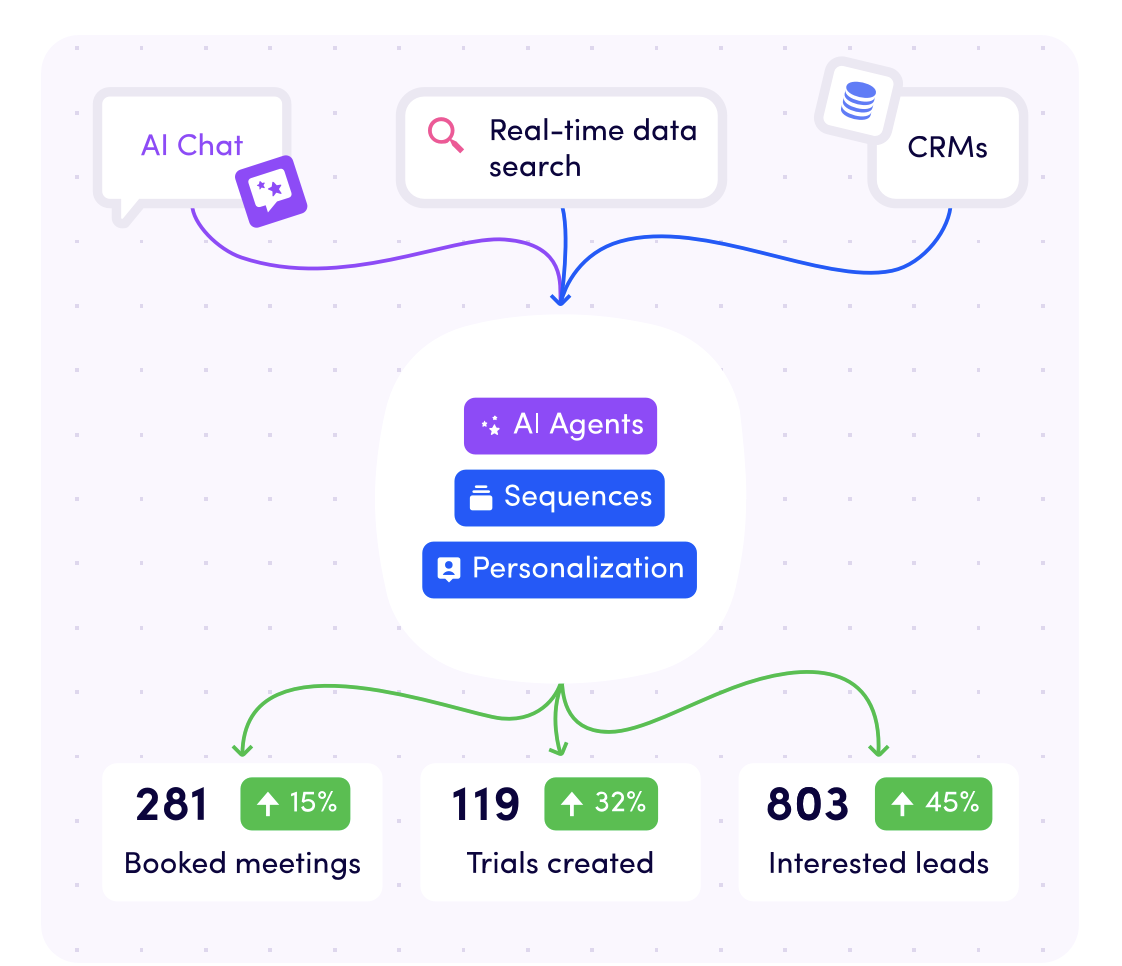Curious about our Growth Marketing Course? Wondering how it can transform your approach to business growth? Look no further! In this blog post, we're tackling the top 11 questions about our course head-on.
From what you'll learn to how it can benefit your career or business, consider this your ultimate guide to discover the possibilities of growth marketing.
Need an immediate answer? Click here below:
1. What is growth marketing?
2. Why is growth marketing important?
3. Who can benefit from taking a growth marketing course?
4. What topics are typically covered in a growth marketing course?
5. Are growth marketing courses suitable for beginners, or do they require prior experience?
6. What skills should a growth marketer have?
7. How can I apply the skills learned in a growth marketing course to real-world scenarios?
8. What are the key aspects of growth marketing?
9. How do I build a growth marketing strategy?
10. Is growth marketing the same as digital marketing?
11. What is the difference between traditional marketing and growth marketing?
12. Want to learn more about growth marketing?
(Video source: Growth Tribe)
1. What is growth marketing?
So, what exactly is growth marketing? It's about finding creative ways to make your business grow steadily over time.
Think of it as always staying on the lookout for new tactics to attract and retain customers.
It's hands-on, data-driven growth marketing strategies, and all about keeping up with the fast-paced digital world we live in with a growth mindset.
If you're looking to take your business to the next level, growth marketing might be the key you've been searching for!
2. Why is growth marketing important?
Growth marketing is vital for businesses because it offers a dynamic approach that adapts to the ever-changing digital landscape.
By constantly experimenting and refining strategies, businesses can uncover what resonates best with their audience, leading to increased revenue and market presence.
Its reliance on data-driven decision-making ensures marketing efforts are targeted and effective, while its focus on scalability allows for expansion without proportional resource increases.
Ultimately, growth marketing foundations enable businesses to stay agile, maximise their impact, and drive sustained growth in today's competitive market.
So, get that certificate of completion and make your digital marketing strategy successful!
3. Who should take a growth marketing course?
A growth marketing course can benefit many individuals and industry experts looking to enhance their skills and drive success in various fields.
- Entrepreneurs aiming to grow their startups
- Marketers seeking to advance their careers
- business owners looking to expand their reach
- Professionals in roles such as
- product management
- Sales
- Digital marketing
Also, individuals interested in understanding how to leverage data-driven insights to fuel business growth.
Or those keen on staying ahead in the rapidly evolving digital landscape can find value in taking a growth marketing course.
Essentially, anyone with a passion for driving business growth and a desire to acquire practical, actionable skills can benefit from the insights and techniques offered in a growth marketing course.
👉 Check out the Growth Tribe course.
4. What topics are typically covered in a growth marketing course?
Growth marketing courses usually cover deep dive on different topics, including
- Customer acquisition strategies
- Conversion rate optimisation (CRO)
- Email marketing
- Search engine optimisation (SEO)
- Social media marketing
- Data Analytics
- A/B testing.
Besides, courses often delve into advanced topics like marketing automation, user retention strategies, and viral marketing techniques through written and video lessons.
5. Are growth marketing courses suitable for beginners, or do they require prior experience?
Many growth marketing courses cater to learners of all levels, including beginners.
While some courses may assume the basics of growth marketing knowledge, they often provide comprehensive introductory modules to ensure that participants can grasp the fundamentals before delving into more advanced topics.
Additionally, hands-on exercises and case studies for a few hours per week help reinforce learning regardless of prior experience.
If you want to find the best growth marketing courses in 2024, check out this blog.
6. What skills should a growth marketer have?
Growth leaders need a mix of skills to thrive.
They've got to be great at digging into data to find insights, but also creative enough to come up with fresh ideas for campaigns.
Plus, they should know their way around all the digital tools and platforms out there. Strategic thinking helps them set goals and stay focused on what matters while being open to trying new things and learning from the results.
Good communication keeps everyone on the same page, and being able to roll with the punches in a fast-paced environment is a must.
So basically, it's a blend of being smart with numbers, creative with ideas, savvy with tech, and adaptable to whatever comes their way.
7. How can I apply the skills learned in a growth marketing course to real-world scenarios?
Growth marketing courses typically emphasise practical application, providing learners with actionable insights and strategies that can be immediately implemented in real-world scenarios.
Besides, many courses offer case studies, group projects, and assignments that allow participants to apply their newfound knowledge to analyse and solve genuine marketing challenges. Moreover, ongoing mentorship and access to a supportive community of peers can further facilitate the application of learned skills in professional contexts.
8. What are the key aspects of growth marketing?
Growth marketing has several key aspects that collectively drive its effectiveness.
At its core lies a culture of experimentation, where marketers continuously test new ideas and strategies to uncover what resonates best with their audience. This experimental mindset is complemented by a strong emphasis on data-driven decision-making, whereby marketers analyse metrics and user behaviour to inform their strategies and optimise campaign performance. And, growth marketing strategies are designed to be scalable, enabling businesses to expand their reach and impact over time. Central to this approach is a relentless focus on the customer, with marketers striving to understand their needs and preferences to deliver personalised experiences that drive engagement and loyalty.
9. How do I build a growth marketing strategy?
To develop a robust growth marketing strategy, start by establishing clear, measurable objectives aligned with your business goals.
Delve into understanding your audience thoroughly, using research and analytics to grasp their demographics, behaviours, and pain points. Identify unexplored growth opportunities within your existing marketing efforts and craft a compelling value proposition that resonates with your target audience. Embrace a culture of experimentation, testing various strategies, messages, and channels to uncover what delivers optimal results. Enhance your conversion funnel to improve user experience and drive higher conversion rates. Continuously monitor and analyse campaign performance, using data insights to refine and adjust your approach. Through this iterative process of testing, learning, and refinement, you can build a growth marketing strategy that drives sustainable business growth and success.
10. Is growth marketing the same as digital marketing?
While growth marketing and digital marketing share some similarities, they are not the same thing. Digital marketing encompasses all marketing efforts that utilise digital channels such as websites, social media, email, search engines, and mobile apps to reach and engage with audiences. It includes various tactics such as search engine optimisation (SEO), content marketing, social media marketing, email marketing, and paid advertising.
On the other hand, growth marketing is a subset of marketing that focuses specifically on driving sustainable business growth through experimentation, data-driven decision-making, and scalable strategies. While growth marketing often uses digital channels and tactics, its primary objective is to achieve sustainable growth by continuously optimising and iterating on marketing efforts to maximise results.
In essence, digital marketing is a broader term that covers a wide range of marketing activities conducted in digital channels, while growth marketing is a more strategic approach that emphasises experimentation, scalability, and sustained growth. You can learn more about it in this blog.
11. What is the difference between traditional marketing and growth marketing?
Traditional marketing and growth marketing differ in their fundamental approaches, objectives, and methodologies.
Traditional marketing relies on tried-and-tested methods such as print ads and TV commercials to generate short-term sales and brand recognition. In contrast, growth marketing adopts an agile, data-driven approach focused on achieving sustainable growth. It prioritises continuous testing and refinement, using metrics like customer lifetime value and retention rates to drive long-term success in the digital era. In essence, while traditional marketing may deliver short-term results, growth marketing is designed for long-term success in today's dynamic digital landscape.
Want to learn more about growth marketing?
If you feel like elevating your strategy, mastering data-driven tactics, and increasing revenue and referrals, you are in the right place!
Growth Tribe offers a course where you can become an expert in the tools, techniques and strategies that the world’s leading businesses use to grow, and drive impactful growth in your organisation.
This is the structure of the course:
6 modules | 62 lessons | 35 videos | 6 tests | 6 exercises
- Module 1 - The fundamentals of digital marketing
- Module 2 - Data-driven decision-making in growth marketing
- Module 3 - Design your growth experiments
- Module 4 - Top-funnel growth marketing: awareness & acquisition
- Module 5 - Mid-funnel growth marketing: activation & retention
- Module 6 - Bottom-funnel growth marketing: revenue, CLTV, and virality
Whether you're an aspiring marketer or a seasoned professional, this course is tailored to meet your needs and take your growth marketing expertise to the next level.
👉 Check out our course here


















